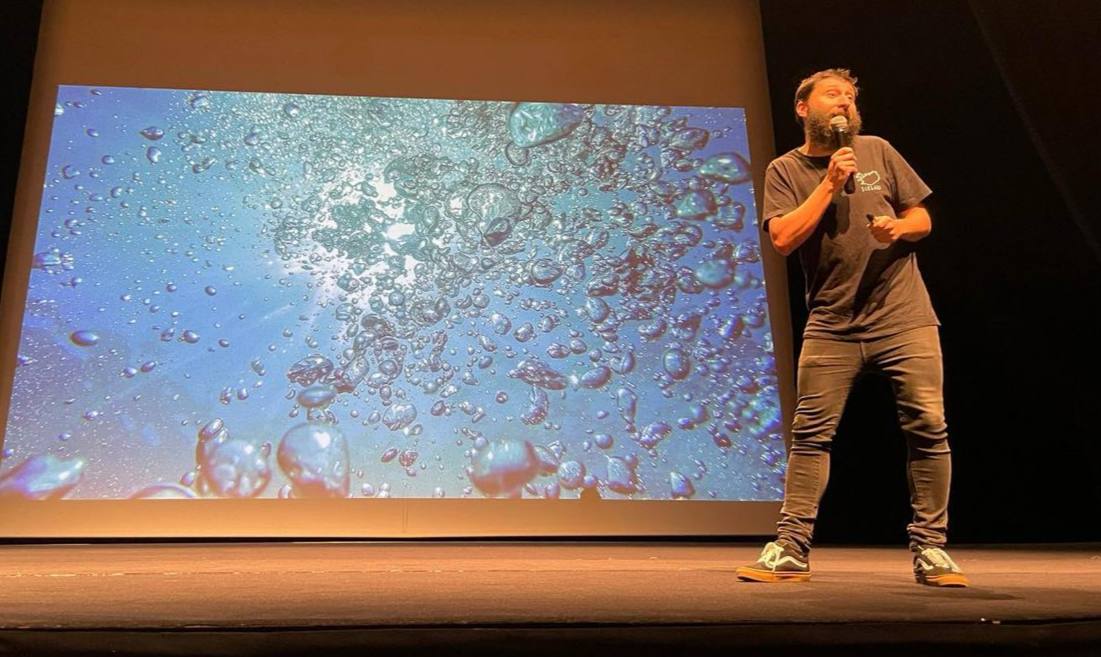Outreach & Divulgation
As a scientist deeply committed with public awareness of science, I think that a good communication is important to expand the reach of our work into the society. Here I show some of the sites/working groups where I have collaborated.

Networking
Member of the North East Atlantic hub of the Global Ocean Acidification Observing Network (GOA-ON), of GOA-ON.
Climate Feedback Reviewer, I belong to a network of scientists that fact-checks media coverage of climate change.
Member of the Past Global Changes Early-Career Network (PAGES ECN) and the Young Earth System Scientists community YESS.
Past member of the working group: Orienting Young Scientists of EuroMarine “OYSTER”, a EUROMARINE group established to engage and support early career marine scientists. (2020-2023)
Seminars
North Atlantic Ocean acidification impacts, Ocean Carbon & Biogeochemistry OCB Seminar Series, 2021.
Atmospheric and Marine Biogeochemistry (AMB) seminar series in the School of Environmental Sciences at the University of East Anglia, October 2020.
Radio & Podcast
Diario de a bordo: el equipo que vigila la salud de los océanos, Hoy en EL PAÍS, septiembre 2023. Grabado, escrito y montado por Marta Curiel.
El CO2 y la destrucción de los corales del Atlántico Norte, Principio de Incertidumbre, Radio Extremadura, 2018.
TV Documentary
- Recambio climático., Televisión de Galicia produced by Bierzo Paradiso SL, script and direction Valentín Carrera.
Blog posts
- Los otros corales, SuperScienceMe, 2018.
News
(NOTE: they are mostly in Spanish)
Acidificación amenaza supervivencia marina en el Atlántico Sur, Scidev.Net, 2021.
Atlantic ocean circulation system is slowing down, as accurately described in The New York Times article, Climate Feedback, 2021.
Disueltos como aspirinas: así es como la acidificación del océano está acabando con algunos de los seres más antiguos del planeta, 20minutos, 2020.
Investigadores descubren una nueva amenaza en el Atlántico, La Voz de Galicia, 2020.
La mancha del Atlántico: una anomalía que preocupa a los científicos, La Voz de Galicia, 2019.
2°C is not known to be a “point of no return”, as Jonathan Franzen claims, Climate Feedback, 2019.
Galicia, el futuro refugio del coral, La Voz de Galicia, 2018.
Acidification could leave oceans ‘uninhabitable’ for cold-water corals, Carbon Brief, 2018.
Los corales de aguas frías también se están muriendo, El País, 2018.
La contaminación acabará con los corales del Atlántico en pocas décadas, La Voz de Galicia, 2018.
Científicos galegos alertan en “Nature” de que os corais de augas frías están en perigo, GCiencia, 2018.
El cambio climático amenaza las profundidades oceánicas, El Periodico de Catalunya, 2018.
La acidificación del Atlántico Norte amenaza a los arrecifes de coral, Faro de Vigo, 2018.
Una tesis viguesa ratifica el papel del Atlántico Norte como destacado sumidero del carbono atmosférico, Faro de Vigo, 2018.
Unha tese afonda na relación entre as correntes do Atlántico e os sumidoiros de carbono, Gciencia, 2018.
Other dissemination activities
Invited speaker at Menudo Foro Acui with the conference Inimigos as portas o cambio climático é unha ameaza para o noso océano, 2024.
Virtual Early Career Ocean Professional (V.ECOP) Day, June 1, 2021. A live walk through a chemical oceanography survey (GO-SHIP line)(Video)
Invited speaker at Galicia no Antropoceno: Cambio Climático e outros retos ambientais with the conference Impactos de la acidificación oceánica en Galicia., 2018.
Several activities of scientific divulgation in high schools with interactive experiments: “Ocean Acidification: the other problem of CO2“.
My willingness is to expand the outreach of the scientific work beyond the academic world, so if you think I can help you, please don’t hesitate to contact me! I will do my best, for sure!
Marcos Fontela, 2025 ©. This web is made with R-markdown.